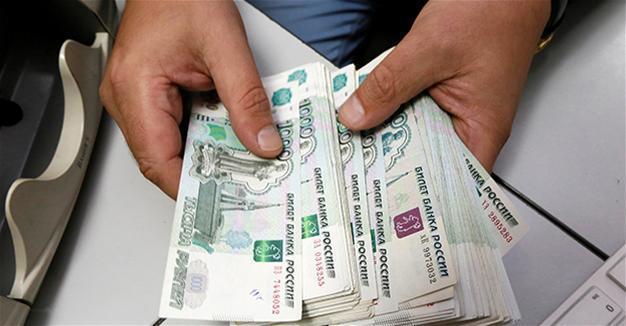Russia and Ukraine head for $3 bln debt showdown in English court
LONDON - Reuters

REUTERS photo
A $3 billion dispute between two adversarial governments will come to a head in an English court on Jan. 17 when Russia and Ukraine meet for a first hearing in their legal battle over a politically charged eurobond.
The debt at the heart of the dispute was sold in late December 2013 by then-Ukrainian President Viktor Yanukovich to Russia, less than two months before his Moscow-backed government was ousted by street protests that swept the ex-Soviet republic.
Fast-forward through a pro-Western change of government in Kyiv, Russia’s annexation of Ukraine’s Crimea region and an International Monetary Fund bailout for Ukraine involving a restructuring of sovereign, hard currency bonds.
Those bonds, restructured to pull the near-bankrupt Ukraine back from the brink, were chiefly held by private investors - aside from $3 billion worth held by the Russian government.
Moscow insists the bond which matured in December 2015 is sovereign debt and should never have been included in the restructuring plan. Kiev refused to repay the bond, saying Russia should have participated in the restructuring.
Russia, represented by Cleary, Gottlieb, Steen & Hamilton LLP, filed a lawsuit in February 2016 demanding a full $3 billion repayment plus legal fees and interest, which according to Moscow’s finance ministry amounted to $75 million a year ago.
The case, which will be heard at the High Court on Jan. 17, is unusual in many ways, according to Mitu Gulati, a law professor at Duke University in the United States.
“The most important big issue here is: Does Ukraine actually owe money to a country that basically ran it as a vassal state and invaded it and took its territory? And that is the kind of question that courts usually don’t ever decide,” said Gulati.
The bond is unusual because countries do not generally lend to each other under a third country’s legal framework, opting instead for direct bilateral agreements. Terms are often kept under wraps.
If debt relief is needed, it tends to be agreed under the framework of the Paris Club of creditor nations, of which Russia is a permanent member.
This bond however was structured under English Law, and both Russia and Ukraine had agreed from the outset that a British court ought to decide on possible disputes, Gulati noted.
“Now a dispute is actually happening, and rather than negotiating and resolving it on their own, they are bringing it in front of a judge which means the judge is going to have to decide on matters that affect international law, not just commercial law.”
Both Russia and Ukraine’s government declined to comment.
Ukraine’s defense, managed by Quinn, Emanuel, Urquhart & Sullivan LLP, centers around a number of arguments. First, that the bond had never been properly authorized by Ukraine’s parliament and government, was issued under duress and was subject to a number of implied additional terms.
Kiev should also be allowed to take “counter-measures” in response to actions taken by Russia, it argued, according to a defense document seen by Reuters.
Russia’s “illegal invasion and unlawful occupation” had deprived Ukraine “of the entire purported economic benefit of the transaction,” the document states in its defense.
The hearing comes after Russia requested a summary judgement, often used to speed up proceedings. This means the court will look at each of Ukraine’s defense arguments and decide if they are likely to stand up in court. Following this, it could allow the case to go to trial, or not.
Russia had the option of a private hearing at the London International Court of Arbitration, according to the bond prospectus, but the fact it chose to bring the case to a public court shows it is confident of victory, legal experts said.
“Their choice was very interesting,” said Peter Griffin at Slaney Advisors, an expert in international arbitration and foreign investment disputes.
“Russia’s case seems to me very strong. And Russia has played this one really intelligently from the beginning - it is almost like they have been two steps ahead of Ukraine and everyone else.”
According to a spokesman for the court, the case will be heard by William Blair, the brother of former British Prime Minister Tony Blair and a highly regarded judge who has written about the concept of “odious debt”.
The term is often used to describe debt incurred by a government that does not serve the interest of the country.
